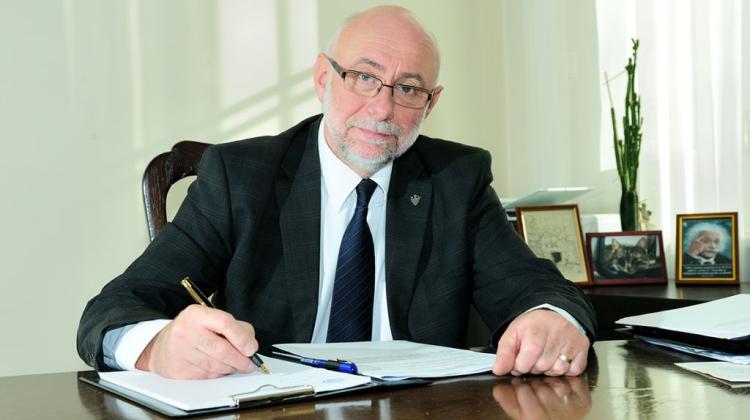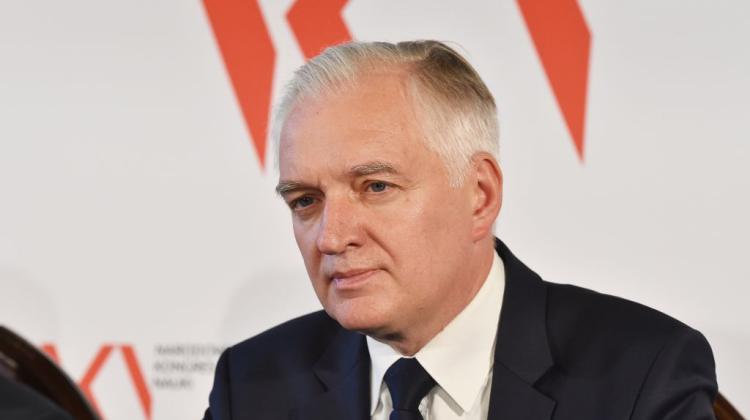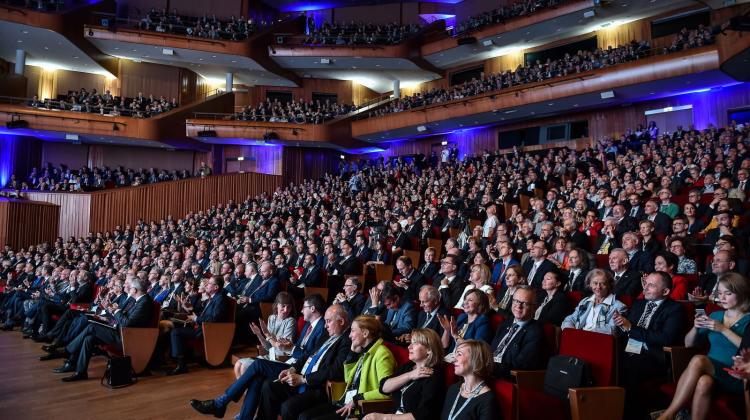Head of the Rectors' Conference: We work towards compromise in the work on the law on universities

We have enough quarrels and disputes in Poland. In the work on the new law on universities we want to show that there are environments that can speak with one voice and work out a compromise. And that is not a bad compromise at all - told PAP Prof. Jan Szmidt, President of the Conference of Rectors of Academic Schools in Poland (CRASP).
PAP: What are the emotions in the academic community that accompany the work on the Law 2.0?
Prof. Jan Szmidt, President of the Conference of Rectors of Academic Schools in Poland (CRASP), Rector of Warsaw University of Technology: At the moment, work on the new law is less and less emotional. At this stage most of the problems have already been articulated. And in my opinion, in the vast majority of institutions representing the scientific community, the idea of reforms is very similar to that expressed by the Minister of Science, Deputy Prime Minister Jarosław Gowin.
PAP: And which of the proposals of the Minister of Science and Higher Education are not to CRASP\'s liking?
J.Sz.: Ah yes, people like to read about controversies. For the time being, however, it is difficult to say because the minister\'s proposals are not yet formulated in detail. The law is only being created. But our goal is not to argue at all costs. We have enough quarrels and disputes in Poland, on various topics. If we were able to communicate with the government - no matter which government it is - we would show that there are environments that can speak with one voice and work out a compromise. And that is not a bad compromise at all.
PAP: Do you think the Minister of Science is willing to make concessions? And is he ready to work out better solutions in a discussion?
J.Sz.: I do believe so. There are CRASP proposals that the Deputy Prime Minister has already accepted or is still working on. But we are very close to a good arrangement. I can reveal that CRASP - after discussions with the Deputy Prime Minister - decided to join the process of writing the bill. We are ready to write our version of the chapter, which will define what university should be like, how it should be organized and what organisational freedoms it have. In our opinion, freedom should be substantial, but within reason.
PAP: Is it possible to work out solutions that will appeal to the whole academic community?
J.Sz.: Of course not. The scientific community is a community individualists. And everyone has the right to speak. This is good. This is what pushes science forward. Everyone has their fears, ideas, etc. But if new solutions are developed in the right framework, thought tunnel, with willingness to agree - everything can be arranged.
PAP: What is your opinion on the procedure for working on the new law?
J.Sz.: I think that the Minister Jaroslaw Gowin approached the process of building it reasonably, thoughtfully. He wanted the community to know the ministry\'s views. And he pointed out that he was open to discussion - perhaps except the paradigm of increasing the autonomy of universities, but in this case there is complete agreement. Then three expert teams worked on the law. I think the solutions that will be adopted in the law will be the consensus between the concepts of these three teams.
PAP: But this stage - working on the reform in three teams - is already behind us.
J.Sz.: Yes. Now it appears that the main factor that influences the shape of reform are the program conferences of the National Congress of Science. These conferences have greatly increased the awareness of the hundreds of people who take part in them. Talks in the lobby during these conferences have led to a better understanding of our arguments. And besides, such big forums for academic discussion in Poland have not happened before. Moreover, it turns out that representatives of academic institutions present at the National Congress of Science conferences have similar views on various issues. In many cases, these people have managed to convince the ministry that the arguments that we present are important and must be taken into account.
PAP: Let\'s go over some of the Minister\'s announcements. Is it a good idea to select research universities in Poland?
J.Sz.: Certainly! Universities that could become research universities basically already have infrastructure and staff. However, they must get more money to maintain this infrastructure, conduct research and international exchange. All this must be covered by additional funds. the Deputy Prime Minister assures that the level of university funding must increase, among other things, to include the amounts needed for the development of such universities, which will become a flywheel and a staff forge for other universities.
PAP: And what about the proposed introduction of the state of rest for professors after 70 years of age?
J.Sz.: The idea behind this change is that professors can work, have a room at their university, work for it, but it is important that they do not block positions that could be given to young people. And the state would give retired professors state of rest 70-75 percent remuneration, for example. I think it\'s a good idea.
PAP: What do you think about - as Gowin announced - making humanist education more elitist?
J.Sz.: We have given a great scale to education in the field of humanities. People were allowed to study for public money, and they wanted to have a job after graduation. They felt fooled because so there have never been and never will be that many jobs for humanists. Therefore, in my opinion, financing the education of these people and then telling them, "we don\'t need you", is dishonest. We should not have financed these studies.
PAP: Let\'s get back to the question of emotions accompanying the work on the reform. At first you said that the reform is accompanied by less and less emotions. But from what you have said, it is clear that emotions are still here. Only the negative, unpleasant emotions disappear - like fear or uncertainty.
J.Sz.: Indeed. If the law did not raise emotions at all, the National Congress of Science conferences would not be attended by 500-800 people. And yet discussions in the lobby get quite heated. But these are not negative emotions directed against someone. This is a creative attitude that leads to developing new solutions.
***
Work is underway in the Ministry of Science and Higher Education on the Law 2.0, new law on higher education. At the end of May 2016, the Ministry of Science selected three independent research teams in a competition. The teams received grants to develop and consult the assumptions for the new law. The results of the teams\' work were presented at the turn of February and March 2017. These proposals became the starting point for further work on the bill.
In parallel to the work of the three teams, since October 2016 the Ministry of Science and Higher Education has been organizing a series of academic debates in the academic community. Program conferences of the National Congress of Science are organized monthly, each time in a different city, and concern the topics relevant to drafting the law. In September, the assumptions of the new Law on Higher Education will be presented at the National Congress of Science in Kraków.
Rozmawiała Ludwika Tomala (PAP)
lt/ agt/ kap/
tr. RL
Przed dodaniem komentarza prosimy o zapoznanie z Regulaminem forum serwisu Nauka w Polsce.


















